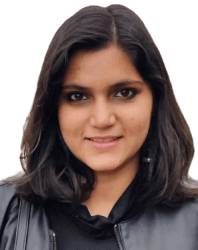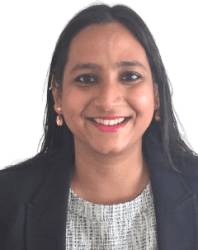- HOME
HOME
- SERVICES
SERVICES
- Study Abroad
Study Abroad
- Study Abroad Counseling
- Parent Counseling
- Test Prep
- College Selection
- Essay Editing and Applications
- Interview Prep
- Post Interview Essay
- Re-applicant Essay
- Resume Review
- Post Result Strategy
- Scholarship Application
- Waitlist Letter
- Letter of Recommendation (LOR)
- Study Abroad Scholarships
- IBDP Diploma Essays
- Essay tutorial
- Career Guidance
- Packages
- FAQ
- Study In India
- Skill Enhancement
- Study Abroad
- DEGREES
- TESTIMONIALS
- TEAM
- OFFERS
- RESOURCES
RESOURCES
- Free Tools
- Undergrad (8th – 12th Grade)
- Masters
- MBA
- M.Phil / Ph.D
M.Phil / Ph.D
- Executive Education
Executive Education
- Career Guidance
- Top Global Universities
- Top MBA Programs
- Admission Officers Insights
- Books
- EVENTS
EVENTS
- FINANCE YOUR EDUCATION
FINANCE YOUR EDUCATION
- MEDIA
- HOME
- SERVICES
- Study Abroad
- Study Abroad Counseling
- Parent Counseling
- Test Prep
- College Selection
- Essay Editing and Applications
- IBDP Diploma Essays
- Essay tutorial
- Interview Prep
- Post Interview Essay
- Re-applicant Essay
- Resume Review
- Post Result Strategy
- Scholarship Application
- Waitlist Letter
- Letter of Recommendation (LOR)
- Study Abroad Scholarships
- Career Guidance
- Packages
- FAQ
- Study In India
- Skill Enhancement
- Study Abroad
- DEGREES
- TESTIMONIALS
- TEAM
- OFFERS
- RESOURCES
- EVENTS
- FINANCE YOUR EDUCATION
- MEDIA
Don't let the lockdown lock you down!
We know that the present pandemic can be difficult. However, this is a great time to reflect on your study abroad and career goals and plan ahead.
We have made our services accessible at reduced prices in this lockdown. ReachIvy.com Experts are here to help you!
Indian Certificate of Secondary Education (ICSE)
The Indian Certificate of Secondary Education examination is a Grade 10 school examination and the standard of the examination presupposes a school course of ten years from Classes I-X. It is a slightly more rigorous program known for developing strong fundamentals of a subject by using the repetitive method and building the practical knowledge through practical assignments. It is also an internationally recognized and accepted qualification for entry into higher education.
ICSE equips students with knowledge that will enable them to gain life skills for their personal and professional development while being aware of their responsibilities towards society as well. The ICSE board offers its students strong concepts and encourages them to research. It focuses more on developing interdisciplinary understanding although its academic curriculum is rigorous compared to most of the others. Projects are an integral part of the curriculum, which helps develop analytical skills in a student. The ICSE board offers its students strong conceptual knowledge but prepares for management studies as well.
Program Overview
The syllabus followed by the ICSE board is very comprehensive and complete, encompassing all fields with equal importance.
- The curriculum is made up of 3 categories or subject groups named as Group I, Group II and Group III.
- 3 Subject Groups. Students have a vast range of subjects to choose from each of the three groups. A minimum of 7 subjects should be selected for qualifying in ICSE. The curriculum exposes the student to both depth and breadth of knowledge and understanding.
- Group I; English, History & Civics, Geography, and Indian Language (for e.g. Hindi) are the compulsory subjects for ICSE. English has two papers: Paper I is language based while Paper II is literature based.
- Group II; You can choose any two subjects out of the mathematics, science (comprised of Physics as Paper I, Chemistry as Paper II and Biology as Paper III), Environmental Science, Computer Science, Commercial Studies, Technical Drawing, Modern Foreign Language, Classical Language and Economics.
- Group III; You can choose any one subject from the following electives available: Computer Applications, Economic Applications, Commercial Applications, Art, Performing Arts, Home Science, Cookery, Fashion Designing, Physical Education, Technical Drawing Applications, Yoga, and Environmental Applications.
Assessment
The assessment criteria are a combination of both internal and external assessment. Internal assessments are vital in ICSE. All subjects have some component of internal assessment that are carried out by schools, on the basis of assignments/project work, practicals and coursework. There is 20% weightage for internal assessment in group I and II and 50% weightage for group III.
In subjects where there are more than one papers (e.g., Science), the marks obtained in the subject are calculated by taking the average of all the papers in the subject. Candidates appearing for the examination have to study six subjects, with one to three papers in each subject. For subject HC&G the paper 1 consists of History & Civics and paper 2 consists of Geography. Science consists of three papers each for Physics, Chemistry, and Biology. This makes for a total of eight to eleven papers, depending on the subjects. SSC results are taken from best five of six subjects (out of which English marks is compulsory).
Is It Right For You?
Deciding if the ICSE exam is right for you partly depends on how you learn and your future aspirations. The ICSE system is comprehensive but rigorous as it aims to provide practical knowledge and build analytical skills in students. The curriculum places emphasis on all the subjects and also has selection built into the process. Students who are interested in careers in management and humanities will find the curriculum to be better aligned. Additionally, the ICSE certification is recognized globally and due to the emphasis placed on English, students can gain a slight advantage compared to other Indian boards.
MEET OUR EXPERTS

Garima Rana
MPP - University of Oxford
B.Sc.,Indira Gandhi Delhi Technical University

Ananya Jain
B.Com, Delhi University
M.Fin, Cambridge Judge Business School

Kovid Gupta
MBA, Cornell University
BBA, BS, BA, The University of Texas at Austin

Archana Rao
MBA, Darden University of Virgina
B.Tech, University of Pune

Suman Barua
M.Ed, Harvard University
B.E, Mumbai University

Madhav Pathak
MBA, Indian School of Business
MS, Carnegie Mellon University

Gaargi Desai
MS, Harvard University
BA, Tulane University

Ameya Bhangle
MBA, Harvard Business School
B.Sc.(IT), St. Xavier’s College, Mumbai

Niyati Dave
MA, Smith College, Northampton
Fellowship, Urban Studies/Affairs

Aashay Doshi
MBA, Tepper School of Business Carnegie Mellon University
B.Sc., University of Maryland College Park
OUR STUDENTS HAVE REACHED







